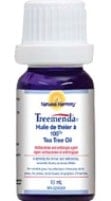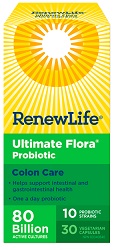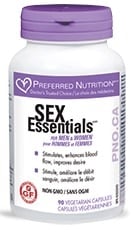A migraine is much more than just a bad headache – it’s a recurrent, throbbing headache, usually on one side of the head, often accompanied by "auras" such as nausea and sensitivity to light and sound. The pain of migraines can be excruciating and debilitating, lasting for hours or even days. Sometime in their lives, up to 20% of men and up to 35% of women will suffer migraines.
Low CoQ10 is common among migraine sufferers, and supplementing can help.
While most experts agree that migraines are the result of excessive constriction of blood vessels in the head followed by a rebound dilation period, the exact cause of this pattern is not fully known. Some possibilities include abnormal blood flow control, a platelet disorder, a nerve disorder and low serotonin. Studies also indicate that food sensitivities and/or allergies likely contribute to many cases, as may magnesium deficiency.
Recent studies highlight a few natural remedies with the potential to significantly alleviate migraine headaches.
- Coenzyme Q10: This year, US researchers at the Division of Neurology, Cincinnati Children’s Hospital Medical Center, studied 1,550 young subjects (average age 13.3 years) with frequent headaches. They discovered that coenzyme Q10 deficiency was quite common in among the subjects (74.6%), and that supplementation with coenzyme Q10 among those deficient was found to be effective in reducing the frequency of headaches. In all, 46.3% of the patients experienced a 50% reduction in headache frequency.
- Alpha-lipoic acid:
In another study, researchers at the University of Liege, Belgium, conducted a randomized, controlled trial on 44 patients diagnosed with migraine headaches (with or without aura). They found that supplementation with lipoic acid reduced the frequency of migraine attacks, the number of headache days and the severity of headaches over the course of three months, while no changes were found among subjects taking the placebo. - Butterbur: German researchers recently looked at the role of butterbur root extract on migraine prevention in children and adolescents with severe migraines. Previous trials have demonstrated the success of Butterbur in migraine reduction in adults. A total of 108 children and adolescents (6 to 17 years) who suffered from migraines for at least one year were treated with 50 to 150 mg of the butterbur root extract, depending on age, for four months. The researchers found that 77% of patients reported a reduction in the frequency of migraine attacks of at least 50%. Total attack frequency was reduced by 63%, and 91% of patients felt substantially or at least slightly improved. They conclude that butterbur "shows a potential as an effective and well-tolerated migraine prophylaxis also for children and teenagers."
Sources: Headache, 2007; 47(1): 73-80: Headache, 2007; 47(1): 52-57; Headache. 2005 Mar;45(3):196-203





